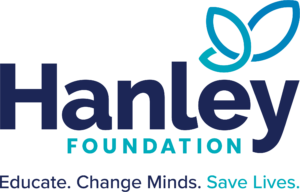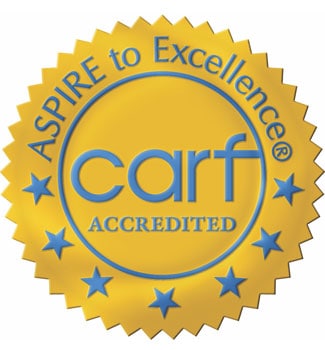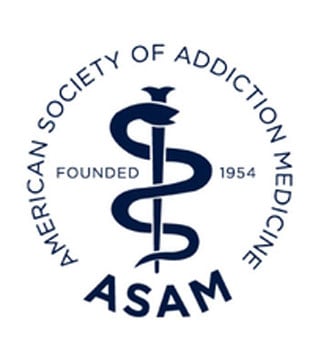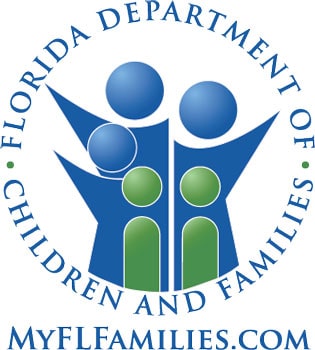Opioid Addiction Treatment Center

Opioids are highly potent and often prescribed to relieve chronic pain. Examples of opioids include oxycodone, hydrocodone, fentanyl, buprenorphine, and tramadol. Heroin, an illegal and highly addictive drug, is also an opioid.
All opioids are highly addictive. Misusing them can result in long-term changes to your brain. They can also negatively impact your overall mental and physical health.
If you or someone you love is living with opioid addiction, there is help available with us.
As one of the leading inpatient opioid treatment centers in Florida, we understand that it takes a personalized approach to long-term sobriety from opioids. That’s why we offer specialized treatment plans to meet you where you are.
Continue reading to learn more.
TYPES OF ADDICTIONS
The Connection Between Opioid Misuse and Anxiety
Misusing opioids can lead to the development of an anxiety disorder or an increase in the severity of existing anxiety symptoms.
Inpatient opioid addiction treatment centers, like Hanley Center in West Palm Beach, give patients with opioid dependence and co-occurring mental health disorders, like anxiety, a treatment program designed for their individual needs.
When co-occurring disorders are left undiagnosed, patients often struggle to find long-term recovery from their addiction. However, realizing the effects of an undiagnosed mental health disorder can help patients with severe opioid addiction receive optimal care.
The Risk of Opioid Misuse for Chronic Pain
Patients with chronic pain due to injury or surgery are more likely to be prescribed opioid medications to manage long-term symptoms. However, this significantly increases the risk of opioid addiction.
Even though most people with chronic pain do not intend to misuse opioids when they begin their prescription, they may find themselves unable to stop taking them without professional intervention.
Healing and Recovery at Hanley Center
With the right resources, complete recovery and healing are possible.
When addiction and co-occurring disorders are both present, choosing the right opioid addiction treatment center is essential. Multidisciplinary teams at inpatient opioid treatment centers like the Hanley Center provide medical detox in a safe and comfortable environment.
Withdrawal can be described as the physical and psychological symptoms that occur after stopping or reducing a substance intake. Hanley Center is equipped with medical services and a round-the-clock medical care team that can recognize and provide resources for those who have developed comorbid medical conditions due to their substance use.
Individual and Group Support
At Hanley Center, individual and group therapy sessions provide a safe place to learn new, healthy skills.
During individual therapy, patients will be able to identify what factors contributed to their substance use. By addressing these factors, a person can learn how to replace substance use with healthy behaviors. In turn, group therapy provides a space where patients can build the coping skills needed to maintain sobriety long after leaving treatment.
Additional Therapies
Hanley Center offers additional therapies to patients living with addiction, including Cognitive Behavioral Therapy (CBT), which teaches patients to break away from negative thought patterns and discover long-lasting sobriety.
CBT helps patients investigate the core thinking behind their behaviors related to substance use. Patients can then learn how to regulate their emotions, manage stress, and avoid substances once they have returned to their daily lives at home.

The Detox Process
Prescription drug addiction—particularly to opioids—alters brain receptors that affect moods. Opioids mainly target reward behaviors in the brain. They also affect hormones. When a person stops using opioids, withdrawal symptoms can be severe.
Opioid withdrawal symptoms may include:
- Intense drug cravings
- Agitation
- Severely bad mood
- Diarrhea
- Enlarged pupils
- Yawning
- Abdominal pain
- Chills
- Goosebumps
- Nausea
- Vomiting
- Body aches
The symptoms of opioid withdrawal may be mild or intense. They can be short-term or last for days or weeks, depending on the type of drug, duration, and amount of use.
Detox medications are administered to reduce cravings and lessen uncomfortable withdrawal symptoms. Withdrawal symptoms can range from mild to severe and can include high blood pressure, fever, muscle spasms, and anxiety. Hanley Center’s medical care team monitors patients’ symptoms every step of the way, keeping them safe and comfortable.
We utilize two different medications to help ease the symptoms of opioid and heroin withdrawal.
Suboxone (Buprenorphine)
The FDA-approved use of an opioid-naloxone combination for the acute treatment of opioid dependence provides a partial block on the brain’s opioid receptors. This block helps patients surpass the urge to use.
In addition, Suboxone partially stimulates the receptor to help relieve the severe withdrawal symptoms that can lead to relapse. This medication-assisted therapy is offered to all opioid-addicted patients at Hanley Center during the detox and withdrawal process.
Vivitrol (Naltrexone)
Vivitrol is a non-narcotic, extended-release version of naltrexone. This opiate blocker prevents opiates from connecting with receptors in the brain. When used in tandem with other clinical therapies, this medication addresses the obsession with use and lowers relapse risk. This non-addictive medication is beneficial during the delicate months of early recovery.

Treatment Modalities
After the initial detox is complete, patients are still at risk for relapse due to psychological and social factors. The effects of opioid and heroin addiction on the structure and chemistry of the brain are significant.
Patients seeking recovery need evidence-based, clinical support for ongoing health and wellness.
Inpatient opioid addiction treatment centers, like Hanley Center, are critical during early recovery. Our doctors, therapists, psychologists, psychiatrists, and our Center for Brain Recovery staff can address opioid addiction through healing therapies that may include:
- Neurofeedback
- Biofeedback
- Neurotherapy
- Cognitive-behavioral therapy
- Wellness activities
- Case management
- Nutritional coaching
- Spiritual care
- 12-Step programming
- Alumni support
Because the withdrawal process can be excruciating and the symptoms ongoing, patients who try to quit using opioids on their own often relapse. Without professional support, they often continue their abuse of prescription or illicit drugs.
Hanley Center offers supervised medical detox to help you through the opioid withdrawal process and prevent additional symptoms. Medication-assisted therapy can alleviate the uncomfortable side effects of withdrawal and is a critical part of sustainable recovery.
Recovery Can’t Be Done Alone; That’s Where Inpatient Opioid Treatment Centers Come In
Many people worry they cannot afford treatment. These fears can cause people to delay getting the help they desperately need.
Luckily, health insurance may cover a portion of the cost of an opioid treatment program at Hanley Center in West Palm Beach.
Insurance experts at treatment facilities can assist with the pre-certification process, showing you what healthcare options are available.
You are not alone. Admission specialists are there to guide patients and their families through all funding options for treatment.
Lifelong recovery should include ongoing continuing care for outpatient therapy and counseling.

Contact Hanley Center: One of Florida’s Most Innovative Opioid Addiction Treatment Centers
Hanley Center is one of the leading opioid treatment centers in Florida, offering a range of treatment programs targeting recovery from substance use, mental health issues, and beyond.
We offer renowned clinical care and have the compassion and professional expertise to guide you toward lasting recovery.
Start your journey to freedom and fulfillment by calling 561.841.1033 today.
Hanley Center: Most Insurance Accepted
Address: 933 45th Street
West Palm Beach, FL 33407




